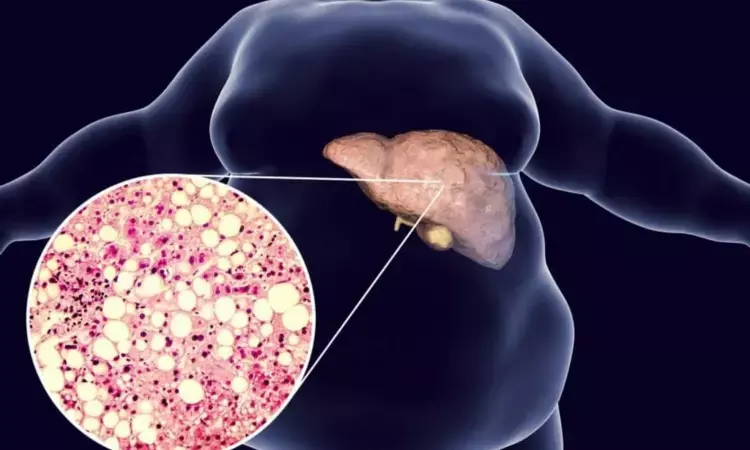- Home
- Medical news & Guidelines
- Anesthesiology
- Cardiology and CTVS
- Critical Care
- Dentistry
- Dermatology
- Diabetes and Endocrinology
- ENT
- Gastroenterology
- Medicine
- Nephrology
- Neurology
- Obstretics-Gynaecology
- Oncology
- Ophthalmology
- Orthopaedics
- Pediatrics-Neonatology
- Psychiatry
- Pulmonology
- Radiology
- Surgery
- Urology
- Laboratory Medicine
- Diet
- Nursing
- Paramedical
- Physiotherapy
- Health news
- Fact Check
- Bone Health Fact Check
- Brain Health Fact Check
- Cancer Related Fact Check
- Child Care Fact Check
- Dental and oral health fact check
- Diabetes and metabolic health fact check
- Diet and Nutrition Fact Check
- Eye and ENT Care Fact Check
- Fitness fact check
- Gut health fact check
- Heart health fact check
- Kidney health fact check
- Medical education fact check
- Men's health fact check
- Respiratory fact check
- Skin and hair care fact check
- Vaccine and Immunization fact check
- Women's health fact check
- AYUSH
- State News
- Andaman and Nicobar Islands
- Andhra Pradesh
- Arunachal Pradesh
- Assam
- Bihar
- Chandigarh
- Chattisgarh
- Dadra and Nagar Haveli
- Daman and Diu
- Delhi
- Goa
- Gujarat
- Haryana
- Himachal Pradesh
- Jammu & Kashmir
- Jharkhand
- Karnataka
- Kerala
- Ladakh
- Lakshadweep
- Madhya Pradesh
- Maharashtra
- Manipur
- Meghalaya
- Mizoram
- Nagaland
- Odisha
- Puducherry
- Punjab
- Rajasthan
- Sikkim
- Tamil Nadu
- Telangana
- Tripura
- Uttar Pradesh
- Uttrakhand
- West Bengal
- Medical Education
- Industry
Metabolic dysfunction associated fatty liver disease tied to cancer risk: Study

China: A recent study has reported that metabolic dysfunction-associated fatty liver disease (MAFLD) is related to an increased risk of a set of cancers (both intrahepatic and extrahepatic cancers), however, the effect varies substantially by the site. The findings of the study, published in the journal Metabolism: Clinical and Experimental, indicate that in the current scheme of cancer prevention, MAFLD deserves higher priority.
MAFLD is a significant health issue that is related closely to multiple metabolic dysfunctions. There is no information on the association between MAFLD and cancer. To throw light on the same, Zhenqiu Liu, Fudan University Taizhou Institute of Health Sciences, Taizhou. China and colleagues aimed to examine the associations of MAFLD with incident events in 24 specific cancers.
For this purpose, participants from the UK Biobank study were diagnosed for the presence of MAFLD at baseline. In total 352,911 individuals (37.2% with MAFLD) were included out of which 23,345 developed cancers.
Following were the study's key findings:
· Compared with non-MAFLD, MAFLD was significantly associated with 10 of the 24 examined cancers, including corpus uteri (hazard ratio [HR] = 2.36), gallbladder (2.20), liver (1.81), kidney (1.77), thyroid (1.69), esophagus (1.48), pancreas (1.31), bladder (1.26), breast (1.19), and colorectal and anus cancers (1.14).
· The associations of MAFLD with liver, esophageal, pancreatic, colorectal and anal, and bladder cancers and malignant melanoma were strengthened in males, and associations with kidney, thyroid, and lung cancers were increased in females.
· The associations of MAFLD with the risk of liver, kidney, and thyroid cancers remained significant after further adjusting for the waist circumference or body mass index and the number of metabolic syndrome components based on the main models.
· The risk-increasing allele of PNPLA3 rs738409 significantly amplified the association of MAFLD with the risk of liver and kidney cancers.
The researchers concluded, "MAFLD is associated with an increased risk of a set of cancers, but the effect substantially varies by site. MAFLD deserves higher priority in the current scheme of cancer prevention."
Reference:
The study titled, "Metabolic dysfunction–associated fatty liver disease and the risk of 24 specific cancers," was published in the journal Metabolism: Clinical and Experimental.
Dr Kamal Kant Kohli-MBBS, DTCD- a chest specialist with more than 30 years of practice and a flair for writing clinical articles, Dr Kamal Kant Kohli joined Medical Dialogues as a Chief Editor of Medical News. Besides writing articles, as an editor, he proofreads and verifies all the medical content published on Medical Dialogues including those coming from journals, studies,medical conferences,guidelines etc. Email: drkohli@medicaldialogues.in. Contact no. 011-43720751


